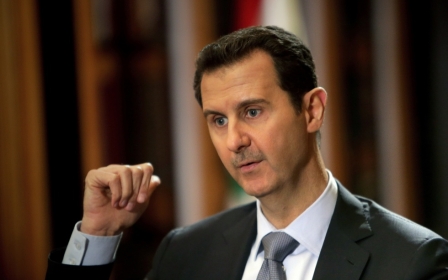Israel declares Golan Heights a 'military zone'

Israel's army on Sunday declared part of the Israeli-occupied Golan Heights a closed military zone, fearing battles on the Syrian side would spill over the ceasefire line.
An army spokeswoman told AFP the area around the Quneitra crossing was closed "for security reasons."
Speaking to AFP, security sources said they feared fighting between rebels and Syrian army forces would affect the area.
Rebels in southern Syria set up earlier this year the so-called Southern Front, including some 30,000 fighters from more than 55 mainstream rebel groups, and have claimed successes, notably in Quneitra.
Israel, which is technically at war with Syria, seized 1,200 square kilometres (460 square miles) of the Golan Heights plateau during the 1967 Six-Day War and later annexed it in a move never recognised by the international community.
Stay informed with MEE's newsletters
Sign up to get the latest alerts, insights and analysis, starting with Turkey Unpacked
In March, Israeli aircraft struck inside Syria in the wake of a bomb attack on the Golan which wounded four soldiers.
Historically, the Golan Heights have been a relatively peaceful setting in the Cold War between Israel and Syria.
But since the Syrian conflict erupted in 2011, the plateau has been tense, with a growing number of stray projectiles hitting the Israeli side, prompting an occasional armed response.
There have also been suggestions that Hezbollah could use the destabilised territory as a front for attacking Israel.
A report in the pan-Arabic newspaper Al-Hayat last May said that the Lebanese Shia militant group had been given permission by Syrian President Bashar Al-Assad, after persuasion from Iran, to use the Golan as a "new front" against Israel.
Israel has long feared that weapons used in the Syria conflict could fall into the hands of Hezbollah, and be used against them.
Middle East Eye delivers independent and unrivalled coverage and analysis of the Middle East, North Africa and beyond. To learn more about republishing this content and the associated fees, please fill out this form. More about MEE can be found here.




